If you’re not familiar with the Three Stooges, this whole article will go right over your head. If you’re a fan, this will make everything about the 2012 crop of GOP candidates make total sense.
I got this idea after seeing Rick Perry’s “Cornerstone” speech in which he really started to cut up. I thought, “wow, he really looks like Moe with a better haircut…” The similarities did not end there, so that’s where I’ll start.

Rick Perry as MOE
The similarity is uncanny. Both think they’re in charge of things, but the chaos surrounding them says otherwise. They like a firm approach to law and order and Perry’s execution record matches up eerily with Moe’s catchphrase, “Remind me to kill you later.” Both think they’re smarter than they sound.
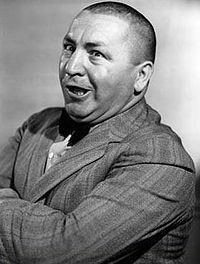
Herman Cain as CURLY
Both have a lack of hair, both have a charming personality, and both are the most unpredictable members of their ensemble. Cain chants “Nine nine nine!” and Curly goes “Nyuk nyuk nyuk!” Cain was never a trained politician, and Curly was never trained as an actor. Cain has his accusations of impropriety and Curly also has a weakness for the ladies… Both are prone to bouts of rhyme. While Cain has had a few sharp outbursts to the press when they press him on matters he’s not comfortable, it is currently unknown if Cain will spin on the floor and attack bystanders like a berserker if he catches a whiff of Wild Hyacinth perfume or hears “Pop Goes the Weasel,” but if he does, Rick Perry and the Larry-Equivalent Rick Santorum should keep either a tassel or some Limburger cheese on hand to calm him down.

Rick Santorum as LARRY
Like Larry, Santorum has a dazed look, like he’s not completely aware of his surroundings. Yet, he’s there. By no means the most entertaining, it wouldn’t be the same without him. He lingers around, never challenging those around him without incurring massive retaliation… so he keeps quiet most of the time. Of all the candidates, Santorum is the one most likely to accidentally put his paint brush in a sandwich and drink paint like coffee without noticing the difference. That makes him the Larry of this gathering.
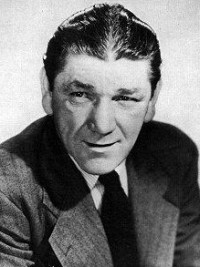
Mitt Romney as SHEMP
Of all the Stooges, Shemp had the most professional acting experience, and that seems to be the case with Romney. Shemp’s known as the “thinking man’s Stooge,” and Romney certainly appeals to the intellectual wing of the Republican party. Shemp never really caught on with the rough and tumble slapstick Stooge fans, and Romney definitely hasn’t ignited the imaginations of the rough and tumble base of the GOP. Even so, Shemp was part of the Stooges’ act before they made their short films and, like Shemp, Romney was a GOP candidate for the presidency back in 2008. Yet, when Curly disintegrated and couldn’t perform, Shemp was there. Should Cain fall away, guess who’ll be there… that’s right: Shemp Romney.
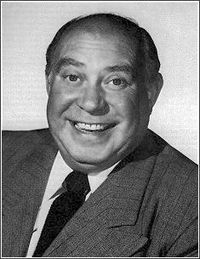
John Huntsman as JOE
While there are those that will argue about the merits of Curly vs. Shemp, Joe has few defenders among Stooges fans. He didn’t fit in with the other Stooges and, well, neither has Huntsman. Joe came from a different tradition, like Huntsman, and his style never quite dovetailed with the others. The least popular of all the Stooges, Joe shares a popularity rating in common with Huntsman. He’s a lot funnier on his own. So is Huntsman.
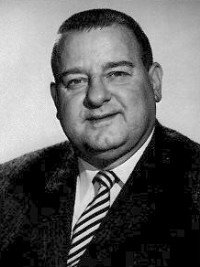
Newt Gingrich as CURLY JOE
Curly Joe came in very late to the Stooges lineup, when they were too old to slap each other around. He appeared in the live-action shorts with the Three Stooges cartoons and in the Stooges feature films. Curly Joe was both an elder statesman of the Stooges and completely irrelevant to what made them successful. That would be Newt Gingrich to a T.

Michele Bachmann as MISS HOPKINS
Incredibly good-looking, but there’s that crazy in the eyes… Both Michele Bachmann and Miss Hopkins (as played by Christine McIntyre, above) could win your heart while breaking your nose. Miss Hopkins is a character in the Stooges short, “
Brideless Groom” and first appears around 7:00. But when she opens her mouth and starts talking around 9:57, it’s a massive barrage of crazy, kind of like what we know Bachmann’s capable of. She savages Shemp – kind of like how Bachmann really lets Romney have it – and finally lands a haymaker that sends Shemp reeling. Kind of a metaphor for how Bachmann, darling of many in the GOP base (at one time) acted as the base’s agent to show the door to Mr. Romney. Feisty, attractive, confused, and crazy, our Miss Hopkins is definitely the archetype for Michele Bachmann.

Ron Paul as EMIL SITKA
What’s this? You’ve never heard of Emil Sitka? Well, if you only watched the news, you’d know Ron Paul’s face, but you’d never hear his name. Nevertheless, Sitka appeared with the Stooges in so many shorts, he was known as “The Fourth Stooge.” He never got full credit as a Stooge, however. Paul has been in many political contests and has faithfully supported the Republican party but, guess what… he’s never gotten full credit as a presidential candidate. In the short posted above for Ms. Bachmann, Emil Sitka appears around 11:30 and soon utters his most famous tagline, “Hold hands, you lovebirds!” He repeats it over and over, in fact. Kind of like how Paul repeats “Audit the Fed!” over and over. That’s about all we remember either of these kindly old gents ever saying.
Well, that’s the GOP roundup. In my research for this article, I reviewed the full version of “Brideless Groom” and realized that it’s a powerful, powerful metaphor for the GOP presidential nomination contest. I plan to write a full breakdown of the symbolism and prescience of that short in a follow-up article.
Thank you for your time and nyuk nyuk nyuk,
Dean Webb
 Bloomberg has obtained documents under the Freedom of Information Act that show guys like the Bank of America executive lying through their teeth. The banks were telling customers and investors that they were sound and solvent and doing just fine while they were, collectively, desperately borrowing trillions to cling to life. And, you guessed it, the execs kept their bonuses coming with those dollars.
Bloomberg has obtained documents under the Freedom of Information Act that show guys like the Bank of America executive lying through their teeth. The banks were telling customers and investors that they were sound and solvent and doing just fine while they were, collectively, desperately borrowing trillions to cling to life. And, you guessed it, the execs kept their bonuses coming with those dollars.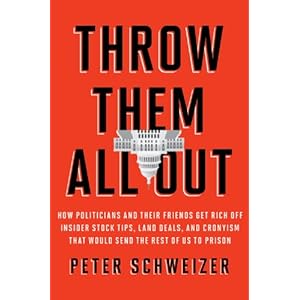








 Dear Ms. Bachmann,
Dear Ms. Bachmann, Dear Pastor Jeffress,
Dear Pastor Jeffress,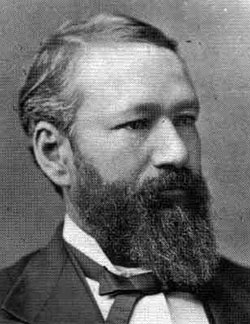 In the many years I’ve taught either US History or US Government, covering Plessy involved saying that it upheld the constitutionality of the doctrine of “separate but equal.” That’s it. As I was writing the above summary, I wanted to check on the date of the ruling and went to the Wikipedia article about it. I noticed in the article that Plessy was actually only 1/8th Black. He was 7/8th White. That means he had only one great-grandparent that was Black. If one switches “Black” out and replaces it with “Jew,” he would have been considered as part of the Volksdeutsche under Hitler’s Nuremberg Laws. Louisiana law in the 1890s held that a person’s ancestors from three generations back could condemn a man to a life as a second-class citizen.
In the many years I’ve taught either US History or US Government, covering Plessy involved saying that it upheld the constitutionality of the doctrine of “separate but equal.” That’s it. As I was writing the above summary, I wanted to check on the date of the ruling and went to the Wikipedia article about it. I noticed in the article that Plessy was actually only 1/8th Black. He was 7/8th White. That means he had only one great-grandparent that was Black. If one switches “Black” out and replaces it with “Jew,” he would have been considered as part of the Volksdeutsche under Hitler’s Nuremberg Laws. Louisiana law in the 1890s held that a person’s ancestors from three generations back could condemn a man to a life as a second-class citizen.